Blood Communion Read online
Page 5
The great hall where my family and I had once dined, quarreled, listened to the demands of the villagers and the farmers, and hovered around the single fire we could afford was now a great palatial ballroom with ample space for an orchestra of vampires, which soon came to be, and some five thousand or more dancers.
At later times when the entire household assembled in this room, there might be two thousand present in the ballroom. No one ever counted, except our resident doctor, Fareed, who is, to this very moment, still trying in vain to calculate the actual size of the blood drinker tribe. His most recent guess is four thousand.
But then three thousand have at times come together at the Château. The fact is no one knows what blood drinkers sleep in the earth or lurk on the periphery, as this one described to me most recently by Fontayne— this “enemy” named Baudwin.
Now let me explain how the Court itself became established and organized. I’ve described some of this in the other two recent books published since I became Prince, but I want you all to be acquainted with how things worked.
And how things worked evolved quickly once I had thrown open the Château to all, and the word went out from one telepathic mind to another, and to all a guarantee of safety was given, so long as they would come with goodwill and respect for us.
My fellow hosts in this were the elders I’d only recently come to know and love—Gregory Duff Collingsworth with his family of Chrysanthe, Zenobia, and Avicus; Dr. Fareed and his maker, Seth, the son of Akasha; the ravishing beauty known as the Great Sevraine, who had for some time been a friend of my beloved mother, Gabrielle; and the Children of the Millennia cherished by me for so long, Pandora and Marius. Jesse Reeves and my beloved David Talbot also came to reside at the Château, and eventually so did the young fledglings of Marius, the pianist Sybelle and the creator of the vampire broadcast that did more than anything to awaken us and unite us as a tribe, Benji Mahmoud.
Antoine, my old fledgling from New Orleans, had been reunited with us and became the conductor of our orchestra; and from an alpine refuge that had been a closely guarded secret for over a thousand years came many more musicians brought into the Blood by Notker the Wise, for music was of such importance to him that it had become his way of moving through eternity.
There were many others, Bianca, a long-lost love of Marius; Davis, of the old Fang Gang; Everard de Landen of Italy; Eleni, who had long ago been my friend at the Théâtre des Vampires; and Allesandra, a powerful immortal who survived the fires that had ended so many of the old Children of Satan who had dwelt beneath the great cemetery, Les Innocents.
There were chambers aplenty for all of these, and they came and went as they chose, and over time began to remain for longer and longer periods.
But through the doors every night for a very long time there drifted new blood drinkers, many penniless and living from victim to victim, and a great many too young to live in the remote mountains where the Château was located.
I would not permit ever any blood drinker to prey upon the mortals of the surrounding villages or towns, and so that meant that many of the young who were unable to take to the air and travel with confidence just under the clouds could not stay with us unless protected by an older vampire who could shepherd them regularly to the thick hunting grounds of Marseille or London or Paris.
But such a Court needs structure eventually, maintenance, and even enforcers who can rid the Court quickly of those who come with no respect whatsoever for what we were seeking to achieve.
And a staff evolved, without my much tending it, due to a young fledgling from America named Barbara.
Barbara like every blood drinker who crossed the threshold had a story to tell that would fill two volumes, but it is enough to say she had one hundred and thirty years in the Blood, and had lost by violence the two elder vampires who had made her, forming with her a household that had endured into this century. It was not the Burnings as we call them which had destroyed her beloved elders, but a random violent raid by one of those marauding blood drinkers who slaughter others for territory.
Barbara and her makers had lived in a venerable old wooden Victorian home in a small university town in the Midwest near enough to several cities for easy hunting. Theirs had been a quiet life enduring for decades under the same roof, with Barbara or one of the others undertaking to teach at the university from time to time, and now and then traveling. In this little group, our books, the Vampire Chronicles, had been studied over the years with skepticism but respect, and it was to me that Barbara came when a maverick burnt down the old home of her makers, destroying them with it.
Barbara had been in the city of Saint Louis at the time, to attend a symphony, and came home before dawn to witness the conflagration.
She remained near the ruins only long enough to ascertain without doubt that her makers were truly dead and gone, reduced to ashes amid the rubble, leaving behind only their unmistakable clothing.
And then Barbara accepted the invitation to all, broadcast night after night by Benji Mahmoud to come to the Court in France as a guest, or to ask for justice.
It had taken Barbara great difficulty to cross the sea. She’d traveled as far north as she could on the American continent and then taken a plane to London, and from there another to Paris, from which she’d driven into the mountains searching for several nights before she came upon the restored Château filled with lights above a perfect village slumbering as if it were under an enchantment.
It was curfew of course that was responsible for what Barbara saw as she drove up the high street. No one among the mortal colony was then allowed out after a certain hour, except to go and come from the tavern in the inn, which Barbara passed making straight for the broad bridge over the moat that surrounded the castle.
I’d not been there when she first came, and did not meet her until a week later. I was immediately drawn to her. She had been in her fifties when the Blood restored her to a more youthful appearance, turning most of her gray hair black again, and banishing forever a crippling disease in the joints that had been making the slightest movements ever more painful for her. She dressed in simple, heavy tweed jackets and long skirts with brown boots to the hem, and pinned her hair back with a diamond barrette, her only adornment. She had a long narrow face that was almost gaunt, with eyes that were immense, and thick black eyebrows drawn quite straight above her eyes and a full ruddy mouth. Her skin was very dark for a blood drinker, and she told of a Greek and Italian heritage and an infusion of African blood through one of her grandmothers.
I liked her at once. But more than that, I was impressed by her. She found the Court astonishing and she had gone to work doing all manner of things that needed to be done, from polishing mirrors, to beating rugs, to unpacking crates of new bronze statuettes (I was always ordering such things) and antique Chinese vases, to fixing taps that were broken, and righting paintings that hung crooked, and cleaning out chimneys that smoked, and picking up garments scattered about and trying to find the apartments of their owners.
And though the cleaning of the Château at that time was the duty of several mortals who resided in the village, Barbara assured me that there was no need for such exposure.
“I am in love with this Court,” she said, “and I can provide what’s needed for all of you if you will allow me to do it.” She’d seen what was obvious, that certain vampires who had wandered in, and clung uncertainly to the shadows, would do anything to become a vital part of the household. Many had skills from their long-ago mortal lives that could be revived now to good use. Only a word from me and their loyalty and submission would be unstinting.
Within a matter of months, Barbara began organizing a staff of quick, eager blood drinkers who attended to every conceivable need while being the eyes and the ears of the council everywhere. Barbara established a log of which apartments belonged to whom, and which were empty, and how many s
olitary rooms there were, and saw to the endless supply of beeswax candles and fresh flowers and wood for the fireplaces.
She kept my wardrobe, though I never dreamed of asking her to do such a thing, sewed buttons on my coats, and even mended a great velvet cloak that I refused to give up, though it had become too fragile for wearing.
Fareed was particularly delighted with Barbara’s innovations, as he wanted to know the history of each blood drinker who came to Court, insisted on taking a sample of the creature’s blood and studying it for what distinguishing characteristics he could find in it.
Barbara brought the guests to Fareed; she explained to them what was expected. She spoke in a soft, deep compelling voice to all with uniform politeness. And her fluency in French and German was very helpful.
Fareed had made many vampire family trees on his computers, and other complex charts, creating as best he could a picture of the common parents shared throughout history and throughout the world by the blood drinkers. His dream was to eventually trace the ancestors of every fledgling all the way back to the primal fount, but his lists and graphs were filled with strange names and blanks, and only occasionally some name common to more than two unrelated wanderers.
We all agreed this was valuable information. Volumes were compiled for every single name ever mentioned, with a brief history of that blood drinker even if he was no more than a character in the wild stories of a ragged vagabond.
Fareed wanted to take Barbara away to his offices in Paris, but I wouldn’t have it. But Barbara found the perfect blood drinker assistants for Fareed and his staff of doctor blood drinkers.
At Court, she continued to create new and refined positions of service, lists of duties, and saw to the matter of incomes for all of these many workers, and that the young ones were under the guardianship of elder vampires who could take them to Paris and Marseille to hunt. She trained ladies’ maids and gentlemen’s valets and had a collection of drivers to take members of the Court over the miles to concerts or operas or films in the nearby cities.
Indeed, Barbara created such a network of supporting staff that I began to wonder how we had lived without them.
And the Château was soon spotlessly clean from its highest and smallest tower rooms, to the spacious open crypts of its cellars.
It was Barbara who found dungeons I hadn’t known existed, under the foundations of the southwest tower.
Excitedly, she took me down the coiling stone stairs to this strange stratum beneath the earth, where the walls oozed damp, and actual prison cells remained with rusted bars and heaps of debris that for all I knew might once have been human remains.
Long narrow air shafts brought the faint light of the moon to some of these places.
“All this should be cleaned and restored, Prince,” she said. “You never know when you will need this.”
“A dungeon, Barbara?” I asked.
And there was Marius at my shoulder telling me firmly that Barbara had a point. He gave the order for it to be done. New bars, new locks.
“You see a different future than I see,” I said to Marius.
“The problem is that you don’t see the future at all,” said Marius. And he made remarks very like those he’d made to me most recently about “our nature,” and what I was denying about it.
“If you ever think I’ll keep a pack of hapless mortal victims down here, you’ve really misjudged me,” I said.
The strangest expression came over his face. Then he turned to Barbara. “Come with me, darling,” he said. “I’ll give you the specifications for what we need here.”
Very soon we became accustomed to blood drinkers who voluntarily assumed the position of servants, showing profound respect for all of us as surely as my father’s old servants had back in the eighteenth century, and for much the same reason.
We had been beggars in those days, one of the poorest families of the peerage, but those old servants whose ancestors had served us for generations had counted themselves blessed to live under the roof of a marquis and have a bowl of porridge to eat every day, a place at a kitchen fire, and meat on holidays. I cannot recall a single one of them, young or old, ever setting out to make his or her fortune in the cities of France where men and women and children starved to death during the harsh winters.
“Just let us stay here. We will do anything.” Barbara recounted that plea over and over. She organized the tasks, the chain of command, banished curious mortals altogether from the Château, and saw to it all knew the rules of the house, and committed themselves to “service.”
Barbara’s last innovation had been livery. I had fully expected the elders and more modern members of the tribe to be outraged at the idea, but they weren’t. And we soon found ourselves accustomed to a staff dressed in spotless black velvet suits and gowns, and addressing the rest of us as “sir” or “madam,” “monsieur” or “madame.”
Of course I was always “the Prince.” And now and then I heard someone referring to me simply as “the sovereign.”
The sovereign.
A small group of clerks was developed by Barbara. They kept the records, paid the taxes, opened such mail as came, and answered the only landline phones in the Château, which were on their desks in their cellar office.
And Barbara, presiding over all, wore a rich and lovely black gown with a string of natural pearls at her throat, and that diamond barrette holding back her hair, ever stepping out of the shadows when I needed her.
So this is the Court to which I returned, in which some six hundred blood drinkers were lodging, and a place in which I felt at home as I’d never felt anywhere in my entire existence except perhaps, perhaps, in my old flat in the Rue Royale in the nineteenth century, when Louis sat in an armchair by the fire reading the French newspapers and Claudia, in her puff-sleeved dress of white gauze, played the sprightly joyful music of Mozart on the pianoforte.
“Out, out, brief candle.” Such comforting remembrance can turn in an instant to agony.
Chapter 5
“So Arjun is dead?” I said as I came down the stairs from the tower. “Where’s Barbara?”
But it was Louis who met me. Louis was his usual rumpled self, his silk tie askew, a layer of palpable dust on his shoulders and on his once-shining shoes, and he began explaining matters in a whisper as if that had the slightest meaning in a building filled with creatures with telepathic powers. Not even Barbara could get him to attend to his appearance.
I put my arm around him and we moved through the various deserted salons making our way to the Council Chamber.
“What happened was not Marius’s fault,” Louis said. There was a pained expression on his usually serene face and a slight tremor to his lip. “Arjun attacked Marius,” he said. His voice was a near whisper again, but I realized that it was what Louis did, lower his voice the more emotional he became. “It had to do with Pandora,” he went on. “Arjun wanted to take Pandora away and Pandora did not wish to go, and Marius warned him to leave her alone or ‘face the consequences.’ They went out there somewhere near the woods to have it out. But everybody could hear Arjun thundering at Marius, excoriating him for his interference, and his wild protestations of his love for Pandora.”
I could easily hear this, though in fact I’d never heard Arjun raise his voice except in the story told to me by Fontayne.
“And Pandora, what was she doing?” I asked.
“Weeping. Weeping in the arms of Bianca.” He sighed. “Somehow or other she had become the very personification of the conflicted, passive, suffering woman, utterly incapable of defending herself. They’ve become like two wives to Marius, Bianca and Pandora—and Arjun was restless and wanted to leave. He claimed to have been reborn, ready to confront this new world, and he ordered Pandora to ready herself to go back to India with him.”
“She didn’t want to go with Arjun.”
“No, obviously not. But she seemed unable to say so.”
“Did you see what finally happened?” I asked. We were drawing closer to the Council Chamber, and I’d spied a very few vampires about, mostly sitting together in small groups in the shadows, as if someone had forbidden them to move or speak or dance or sing or read or do anything. Barbara stood outside the room with her black leather-bound notebook in her arms waiting for me.
“No,” said Louis. “I didn’t, but others did. I had my hands over my ears. I was trying to read. But all are in agreement Arjun shoved Marius, dealt him a vile blow to the face, and sent the fire at him. Marius sent the fire right back and utterly obliterated Arjun.”
Countless thoughts crowded into my head. What was really going on here? Why was the house so ridiculously quiet, and what was on the minds of all the vampires who now sat silent in shadowy corners? What was on the mind of the council?
I thought again of Fontayne, actually waiting for some sort of permission from this Court before bringing a young mortal woman into the Blood, and that maverick hissing at me, “By what authority do you do this to me?” and I figured there was nothing to be done but for me to enter the Council Chamber.
I went in, and took my usual place at the head of the table nearest the door. Barbara took a seat to my right, away from the table and against the wall, and opened her notebook and prepared her old-fashioned fountain pen for writing. Louis took his usual place at my right hand at the table.
Marius was in the chair to my left, but he had moved it away from the table and he sat facing the assembly, but not looking at it, with his arms folded. He was wearing his usual long red velvet tunic. And he hadn’t bothered to cut his hair, which he often did on rising, and it hung in a great mass around his face and to his shoulders. He was frowning.

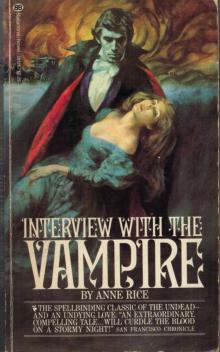 Interview with the Vampire
Interview with the Vampire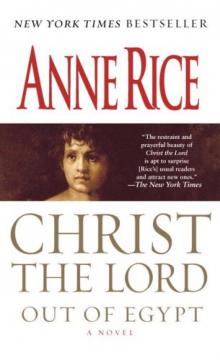 Christ the Lord: Out of Egypt
Christ the Lord: Out of Egypt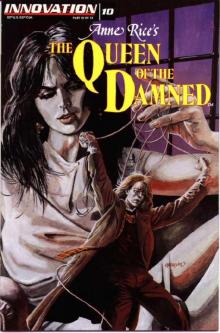 The Queen Of The Damned
The Queen Of The Damned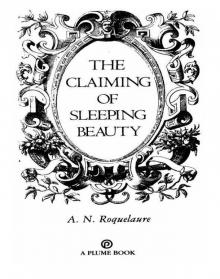 The Claiming of Sleeping Beauty
The Claiming of Sleeping Beauty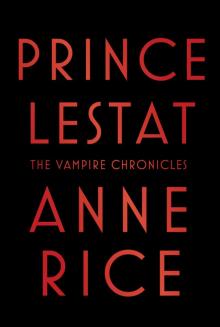 Prince Lestat
Prince Lestat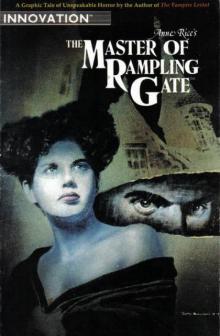 The Master of Rampling Gate
The Master of Rampling Gate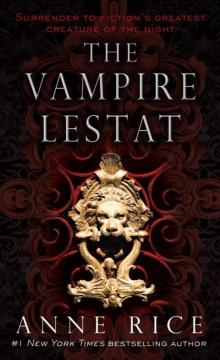 The Vampire Lestat
The Vampire Lestat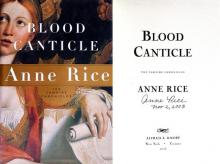 Blood Canticle
Blood Canticle Beauty's Release
Beauty's Release Pandora
Pandora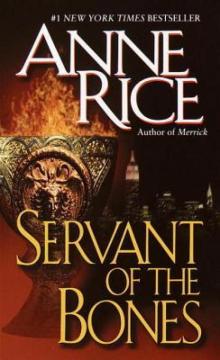 Servant of the Bones
Servant of the Bones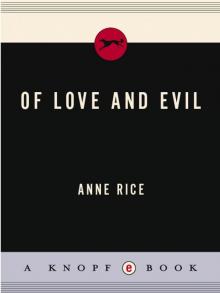 Of Love and Evil
Of Love and Evil Beauty's Punishment
Beauty's Punishment Cry to Heaven
Cry to Heaven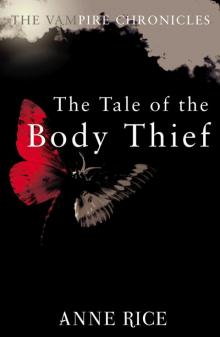 The Tale of the Body Thief
The Tale of the Body Thief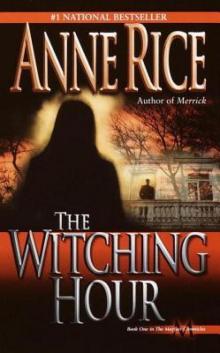 The Witching Hour
The Witching Hour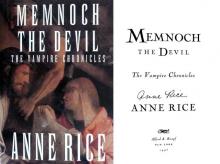 Memnoch the Devil
Memnoch the Devil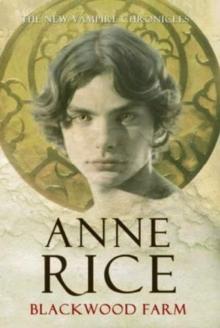 Blackwood Farm
Blackwood Farm Beauty's Kingdom
Beauty's Kingdom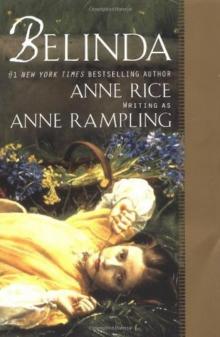 Belinda
Belinda Lasher
Lasher Vittorio, the Vampire
Vittorio, the Vampire Angel Time
Angel Time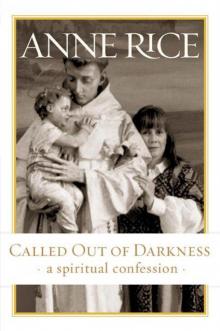 Called Out of Darkness: A Spiritual Confession
Called Out of Darkness: A Spiritual Confession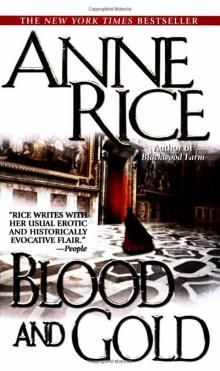 Blood And Gold
Blood And Gold The Passion of Cleopatra
The Passion of Cleopatra Taltos
Taltos Exit to Eden
Exit to Eden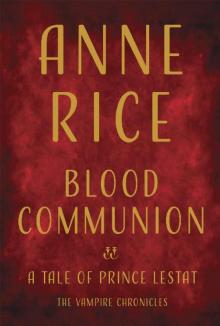 Blood Communion (The Vampire Chronicles #13)
Blood Communion (The Vampire Chronicles #13) The Wolf Gift
The Wolf Gift The Wolves of Midwinter
The Wolves of Midwinter Prince Lestat and the Realms of Atlantis
Prince Lestat and the Realms of Atlantis The Ultimate Undead
The Ultimate Undead The Vampire Lestat tvc-2
The Vampire Lestat tvc-2 The Road to Cana
The Road to Cana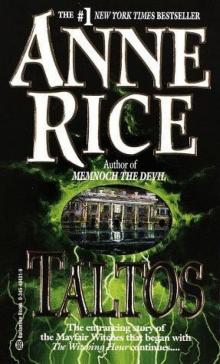 Taltos lotmw-3
Taltos lotmw-3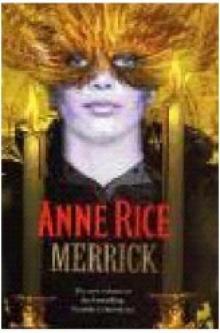 Merrick tvc-7
Merrick tvc-7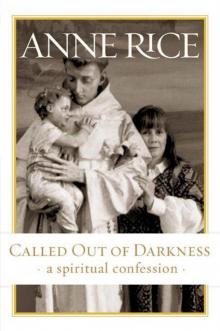 Called Out of Darkness
Called Out of Darkness Pandora - New Vampires 01
Pandora - New Vampires 01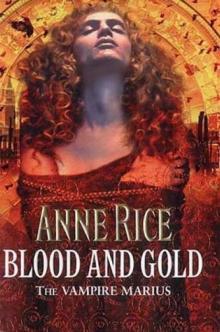 Bllod and Gold
Bllod and Gold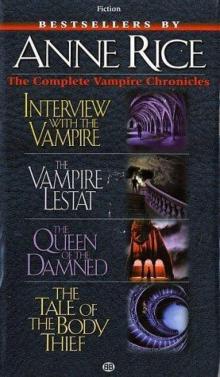 The Queen Of the Damned: Vampire Chronicles
The Queen Of the Damned: Vampire Chronicles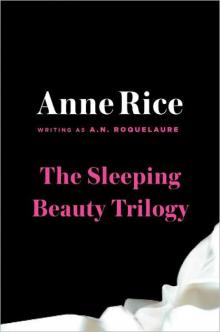 The Sleeping Beauty Trilogy
The Sleeping Beauty Trilogy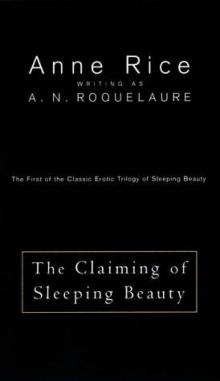 The Claiming of Sleeping Beauty b-1
The Claiming of Sleeping Beauty b-1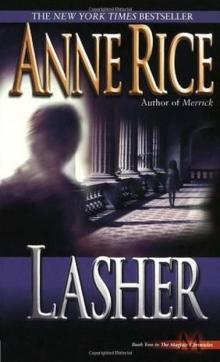 Lasher lotmw-2
Lasher lotmw-2 The Tale of the Body Thief tvc-4
The Tale of the Body Thief tvc-4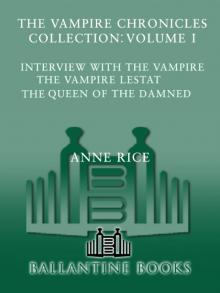 The Vampire Chronicles Collection
The Vampire Chronicles Collection Ramses the Damned
Ramses the Damned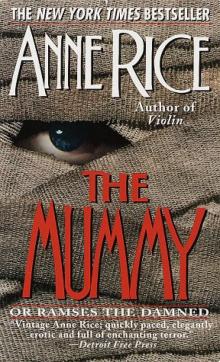 The Mummy - or Ramses the Damned
The Mummy - or Ramses the Damned Vittorio, The Vampire - New Vampires 02
Vittorio, The Vampire - New Vampires 02 The Vampire Armand tvc-6
The Vampire Armand tvc-6 Queen of the Damned tvc-3
Queen of the Damned tvc-3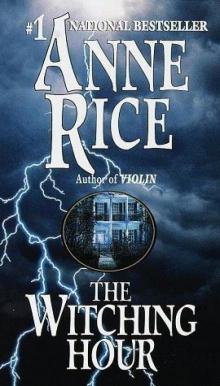 The witching hour lotmw-1
The witching hour lotmw-1 Feast of All Saints
Feast of All Saints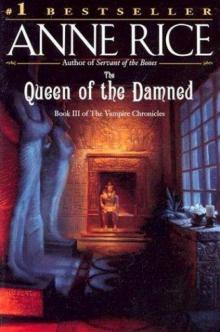 Queen of the Damned
Queen of the Damned The Wolves of Midwinter twgc-2
The Wolves of Midwinter twgc-2 The Mummy
The Mummy Blood and Gold tvc-8
Blood and Gold tvc-8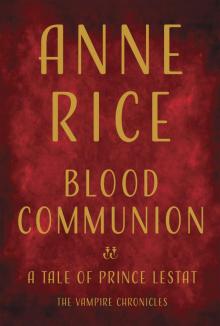 Blood Communion
Blood Communion Interview with the Vampire tvc-1
Interview with the Vampire tvc-1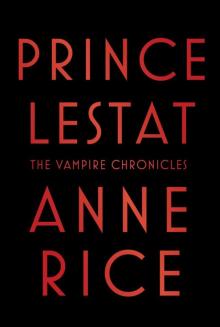 Prince Lestat: The Vampire Chronicles
Prince Lestat: The Vampire Chronicles